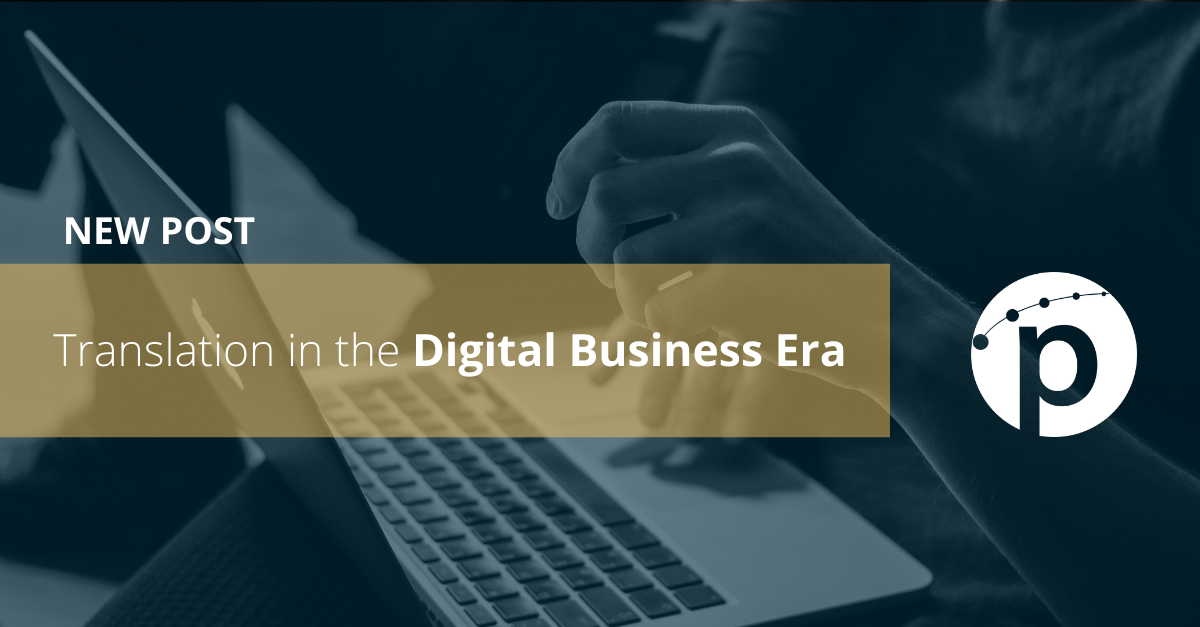In many ways, the world seems to be getting smaller. Transatlantic flights may still take hours, but there is no denying that international markets are becoming more accessible than ever due to globalization, increased connectivity, and the relaxation of trade barriers.
Previously, the possibility of doing business overseas was only an option for large businesses, as they had extensive resources and specialist knowledge. Fortunately, this is no longer the case, as even small digital businesses can reach out to international markets in a number of ways, mostly through international websites, translation services, and website localization.
Why digitize a business?
A digital business has the option of using a ready-made sales platform such as Amazon, offering direct online sales or seeking trading partners in the local market. Content management systems like WordPress, Joomla, etc., and e- commerce software like Prestashop or Magento make it easy to have a global presence... in one language.
However, in order to start out, a digital business has to get its message across to the target audience. This essentially means that you have to be able to speak your customers’ language. It is a fact that the most widely used language online is English. Therefore if your native language is not English (as in my case) you need a translation company and good English translation services to ensure your international website looks great. To some extent, a digital business can use it as a bridging language in the corporate world, but most likely you will need translation services into several languages.
After all, English represents only a third of total online usage because the majority of the world population doesn’t speak English at all. There is also substantial evidence that indicates that even if people understand English, they prefer to visit websites in their own native language, if they are available.
Plenty of surveys have been conducted and all indicate that nearly 75% of online buyers prefer to make purchases from websites in their native language. This means that even if your digital business has a product or service that can garner genuine global appeal, you may not be able to enjoy success if you aren’t able to market in the local language. This can be accomplished by working with native researchers and language translators who can provide you with the relevant cultural background and the necessary facts and figures.
PANGEANIC KNOWLEDGE: Tips for offering optimal user experience across the globe
A study carried out by the European Commission in 2011 showed that:
- 9 out of 10 internet users stated that, if given a choice of languages on a website, they always choose their own language.
- Nearly 1 in 5 Europeans (that's 20%) said they never browse websites in any other language but their own.
- 42% said they never purchase products and services in other languages.
Localizing your website - website translation
The website of every digital business is basically a virtual shop window, and it is usually the main asset used by your business for reaching international customers. Digital business and language translation are partners in a world where just changing the display language on a website makes it available to millions of users.
New customers will often visit your website to get a better idea of your products and services. You can make use of machine translation as an easy and quick solution. However, machine translation may lead to some contextual errors, which can be corrected by native translators. They ensure that your content is factually correct and can also assist with cultural sensitivity and references. Machine translation alone may not be suitable for localizing shipping information, prices and currencies, as well as any import or custom duties.
Translating other materials
Digital businesses can also use machine translation for marketing material, like instruction manuals, brochures, and online assistance. In case of social media presence, local profiles have to be created, and you may also think about using local platforms instead of globally recognized ones. This can only be done with the aid of human translators as they can help in maintaining your page. A digital business should bear in mind that language translation is an ongoing process for reaching out to foreign markets and maintaining your position.Optimize your website with expert keyword translations
We have extensive experience when it comes to not focusing on literal translation work when translating a website. The term website localization began to be used some years ago as an added value service. It involves researching terms as used in a country rather than just the translation, which may be perfectly fine, but not the preferred term people search for in the target country. With constant changes in search algorithms, the marriage between digital business and language translation is here to stay.



